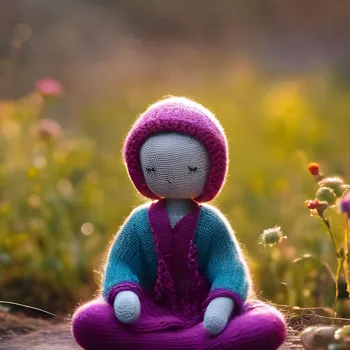Discover 10 Ways to Reduce Stress Naturally in modern Indian life. Embrace calm with simple, effective tips. Read more!
In the hustle-bustle of modern Indian life, stress has become as common as chai. From
battling traffic jams to meeting demanding deadlines, we're constantly bombarded with stressors that can take a toll on our physical and mental well-being. But fret not, my friend!

You don't need fancy solutions or expensive therapies to find your inner peace. This guide offers ten natural and effective ways to reduce stress and bring a little "shanti" into your everyday life. So, grab a cup of tea, relax, and let's dive in!
Embrace the Power of Deep Breathing:
Our breath is a powerful tool that we often take for granted. When stressed, our breathing becomes shallow and rapid, which can exacerbate feelings of anxiety. Deep breathing exercises, also known as pranayama in yoga, can help calm the nervous system and bring you back to the present moment.

One simple technique you can try is the 4-7-8 breathing method. Inhale deeply through your nose for four seconds, hold your breath for seven seconds, and exhale slowly through your mouth for eight seconds.
Repeat this several times, and you'll feel your stress melt away like butter on a hot chapati. You can do it anywhere, anytime – waiting in a queue, stuck in traffic, or even before a big presentation. It's like a mini-vacation for your mind.
Make it a habit, and you'll be surprised how much calmer you feel throughout the day. Remember, a calm mind is a powerful mind.
Get Moving with Regular Exercise:
Exercise is not just about building muscles or losing weight; it's also a fantastic stress reliever. When you exercise, your body releases endorphins, which have mood-boosting effects. You don't need to run a marathon or join a fancy gym.
A brisk walk in your local park, a jog around the block, a fun dance session in your living room, or even a simple yoga routine can do wonders. Find an activity you enjoy, and make it a regular part of your schedule. Even 30 minutes of exercise a day can significantly reduce your stress levels.
Think of it as an investment in your mental and physical health. The benefits extend beyond stress reduction – you'll also improve your sleep, boost your energy levels, and enhance your overall well-being. So, get your body moving and feel the stress melt away with every step.
Prioritize Quality Sleep:
In today's always-on world, sleep often takes a backseat. But skimping on sleep can wreak havoc on your stress levels and overall health. Aim for at least 7-8 hours of quality sleep each night. Create a relaxing bedtime routine to signal to your body that it's time to wind down.

This could include taking a warm bath, reading a book, or listening to calming music. Avoid screen time (phones, tablets, laptops) for at least an hour before bed, as the blue light emitted from these devices can interfere with sleep. Also, make sure your bedroom is dark, quiet, and cool.
A good night's sleep is like hitting the reset button for your mind and body. You'll wake up feeling refreshed, energized, and better equipped to handle whatever the day throws your way.
Don't underestimate the power of a good night's sleep – it's essential for managing stress and maintaining overall well-being.
Connect with Nature:
Spending time in nature has a profound calming effect on the mind and body. Whether it's a walk in a park, a hike in the mountains, or simply sitting under a tree, nature can help reduce stress and improve your mood.

The fresh air, the sounds of birds chirping, and the beauty of the natural world can all contribute to a sense of peace and tranquility. Studies have shown that spending time in nature can lower blood pressure, reduce muscle tension, and boost the immune system.
If you live in a city, make an effort to visit a local park or garden regularly. Even a small dose of nature can make a big difference in your stress levels. Connecting with nature is like hitting the refresh button on your soul.
It reminds you of the simple joys of life and helps you to appreciate the beauty of the world around you.
Practice Mindfulness and Meditation:
Mindfulness and meditation are powerful tools for reducing stress and improving mental well-being. Mindfulness involves paying attention to the present moment without judgment. This can help you become more aware of your thoughts and feelings, and less reactive to stressful situations.

Meditation involves training your mind to focus on a single point of reference, such as your breath or a mantra. This can help calm the mind and reduce anxiety. There are many different types of meditation, so find one that works for you.
You can start with just a few minutes of meditation each day and gradually increase the duration as you become more comfortable. There are also many helpful apps and online resources that can guide you through mindfulness and meditation practices.
Taking a few minutes each day to quiet your mind and focus on the present moment can have a profound impact on your stress levels and overall well-being.
Nourish Your Body with Wholesome Foods:
What you eat can significantly impact your stress levels and your ability to cope with stress. Instead of reaching for processed foods and sugary snacks, focus on nourishing your body with wholesome, unprocessed foods.
A balanced diet rich in fruits, vegetables, whole grains, and lean protein can help improve your mood, boost your energy levels, and reduce stress. Stay hydrated by drinking plenty of water throughout the day. Avoid excessive caffeine and alcohol, as these can exacerbate stress and anxiety.
Eating well is not just about physical health; it's also about mental health. Filling your body with nutritious foods provides the fuel you need to cope with stress and maintain a positive outlook. A colorful plate is not just visually appealing; it’s also a sign of a healthy and happy you.
Your body temple is your responsibility and its important to feed it with good things.
Cultivate Social Connections:
Humans are social creatures, and strong social connections are essential for our mental and emotional well-being. Spending time with loved ones, connecting with friends, and engaging in social activities can help reduce stress and improve your mood.

Talking to someone you trust about your problems can provide emotional support and help you gain a new perspective. Make an effort to stay connected with the people you care about, even when you're busy. A simple phone call, a quick coffee date, or a shared activity can make a big difference.
Social connections provide a sense of belonging and support, which can help buffer the effects of stress. Remember, you're not alone in this journey. Reach out to your loved ones for support and connection.
Practice Gratitude:
Gratitude is a powerful emotion that can shift your focus away from negativity and towards the positive aspects of your life. Taking time to appreciate the good things in your life, no matter how small, can help reduce stress and improve your overall mood.

Start a gratitude journal and write down a few things you're grateful for each day. You can also express your gratitude to others by saying thank you or doing something kind for them. Practicing gratitude can help you cultivate a more positive outlook on life and cope with stress more effectively.
When you focus on what you have, rather than what you lack, you'll find that you have more to be grateful for.
Set Realistic Goals and Manage Your Time:
Feeling overwhelmed by too many tasks can contribute to stress and anxiety. Setting realistic goals and managing your time effectively can help you feel more in control and reduce stress. Break down large tasks into smaller, more manageable steps.

Prioritize your tasks and focus on the most important ones first. Learn to say no to requests that will overextend you. Use a planner or a time management app to keep track of your tasks and deadlines.
Effective time management can help you feel less overwhelmed and more productive, which can significantly reduce your stress levels. Remember, you don't have to do everything at once. Focus on one step at a time, and celebrate your progress along the way.
Seek Professional Help When Needed:
It's important to remember that seeking professional help is a sign of strength, not weakness. If you're struggling to manage your stress on your own, don't hesitate to reach out to a therapist or counselor.

They can provide you with the tools and support you need to cope with stress and improve your mental well-being. Remember, there's no shame in asking for help. Talking to a professional can make a big difference in your life.
Remember, stress is a part of life, but it doesn't have to control you.
By incorporating these natural stress-reduction techniques into your daily routine, you can take charge of your well-being and create a more peaceful and fulfilling life. Take care of yourself, and remember, you deserve to be happy and healthy! Shanti, shanti, shanti.
AI Generated Content. Glance/InMobi shall have no liability for the content













